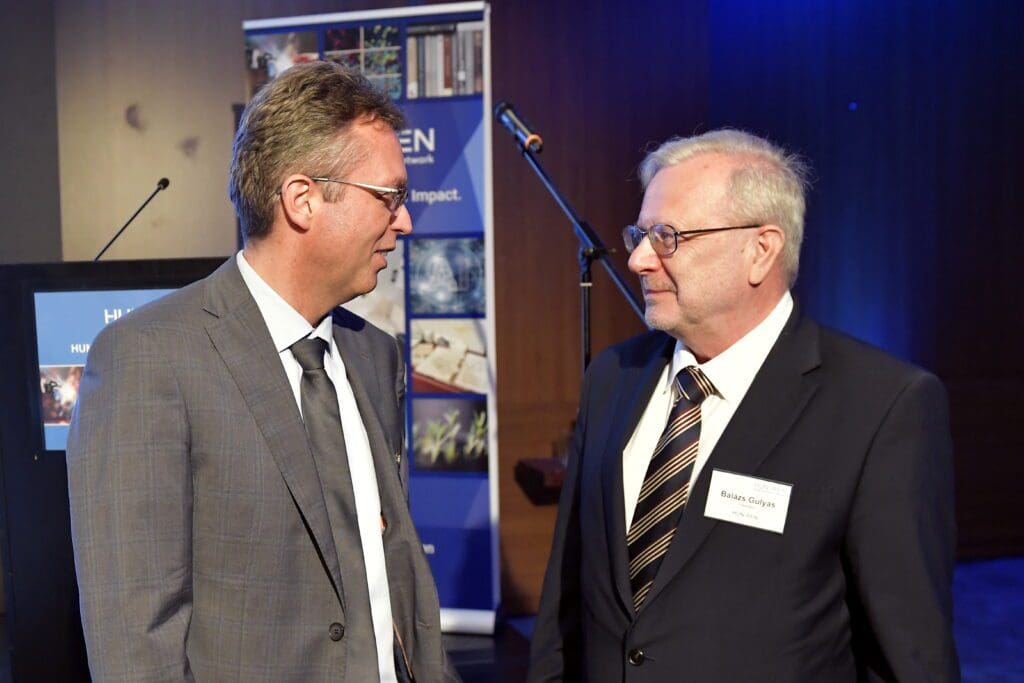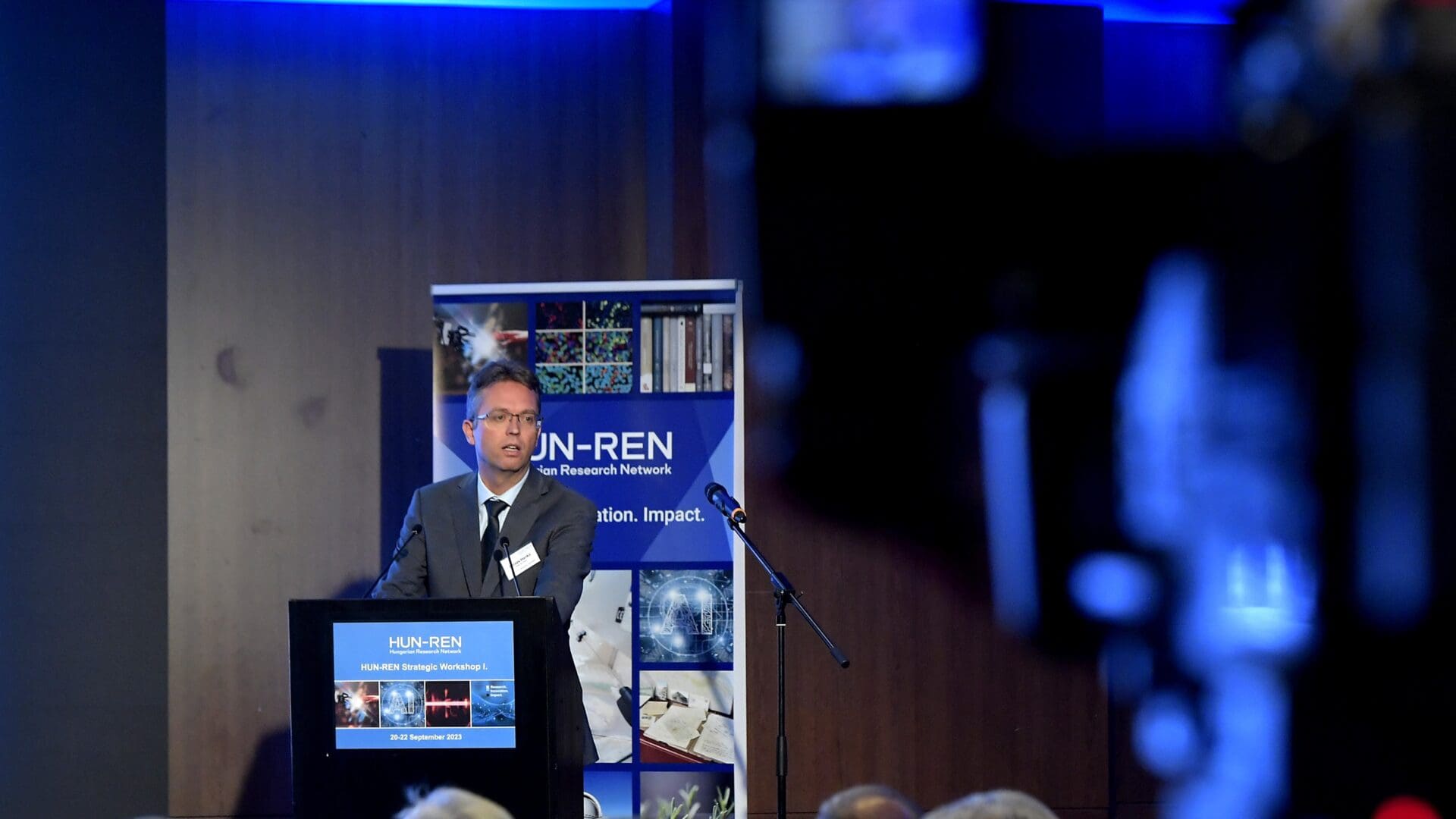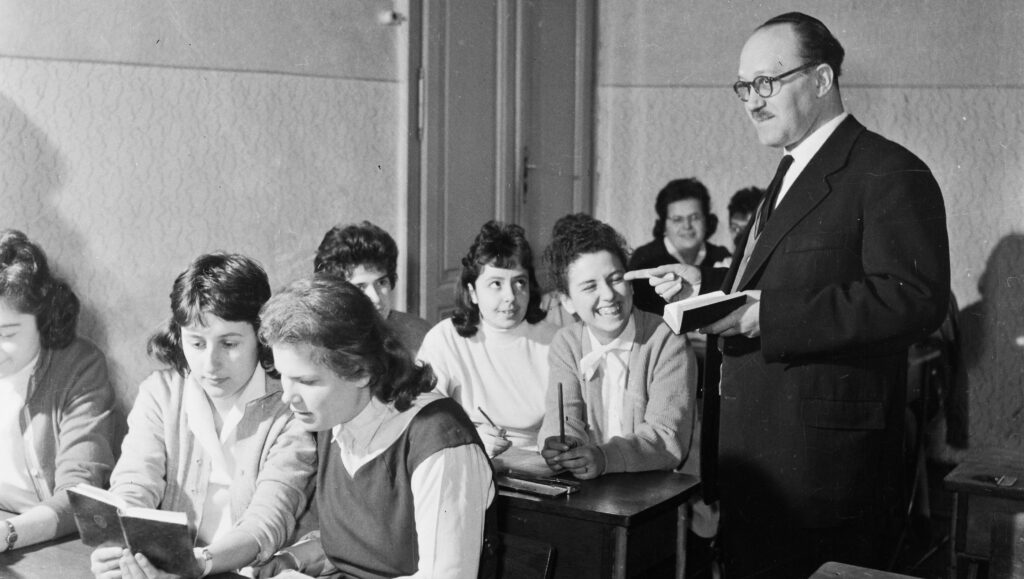From Wednesday to Friday, 20–22 September, the first international workshop of the Hungarian Research Network (HUN-REN) is taking place. Its goal is to allow leading scholars from around the world to become acquainted with the opportunities within the Hungarian research system and to share the best international practices with one another.
In his opening lecture at the event, State Secretary for Innovation and Higher Education at the Ministry of Culture and Innovation Balázs Hankó highlighted that
the Hungarian government’s aim is for Hungary to once again take a leading role in the international scientific community. This goal is to be achieved through the John von Neumann Programme,
which is a new strategic project for Hungarian science and innovation.
The state secretary explained that a key objective of the John von Neumann Programme is to connect participants in the Hungarian economy with Hungarian researchers and universities, ensuring that the research conducted has measurable societal and economic impacts. The ultimate aim of the programme is to have Hungary become one of the top ten innovators in Europe and one of the top 25 in the world by 2030.
President of the Hungarian Research Network Balázs Gulyás spoke about how this inaugural scientific workshop aims to be the flagship of the John von Neumann Programme. The plan is to organize international conferences like this every three months. This way, international and Hungarian experts gathered here can share as many of their research findings and methods as possible.

Among the speakers at the event are Richard Pestell, one of the world’s leading cancer researchers, Alexander J. B. Zehnder, a biochemist who has been involved in leading some of the world’s best international universities for decades, and Philip Campbell, who served as the editor-in-chief of the scientific journal Nature for 22 years.
The researchers and advisors will present the best international practices and trends, and address the role of science in modern society and the ongoing transformation in the evaluation of scientific performance. During the three-day workshop, every research institution affiliated with the Hungarian Research Network will have the opportunity to share their visions regarding possible breakthrough points.
The Hungarian Research Network Secretariat, formerly known as the Eötvös Loránd Research Network (ELKH), is an autonomous public budgetary organization. It was established by the Hungarian Parliament on 1 August 2019, with the primary objective of overseeing and efficiently managing Hungary’s publicly funded independent research network, a pivotal element in the nation’s scientific landscape. HUN-REN is guided by a nine-member independent Governing Board, with its President and a majority of its members holding academic positions, including memberships in the Hungarian Academy of Sciences.
Currently, HUN-REN encompasses 11 research centres and seven research institutes, and supports an additional 116 research groups operating within universities and other public institutions. These groups engage in research spanning a wide spectrum of fields, including mathematics, natural sciences, life sciences, social sciences, and the humanities.
HUN-REN’s foundation rests upon the extensive reservoir of collective knowledge, nurtured within the research network for over a century.
Its mission is twofold: to protect academic freedom and to enhance the efficiency of Hungary’s publicly funded research network, all the while maintaining a strong focus on performance, transparency, and excellence.
Related articles:
Source: Hungarian Conservative/HUN-REN/MTI







